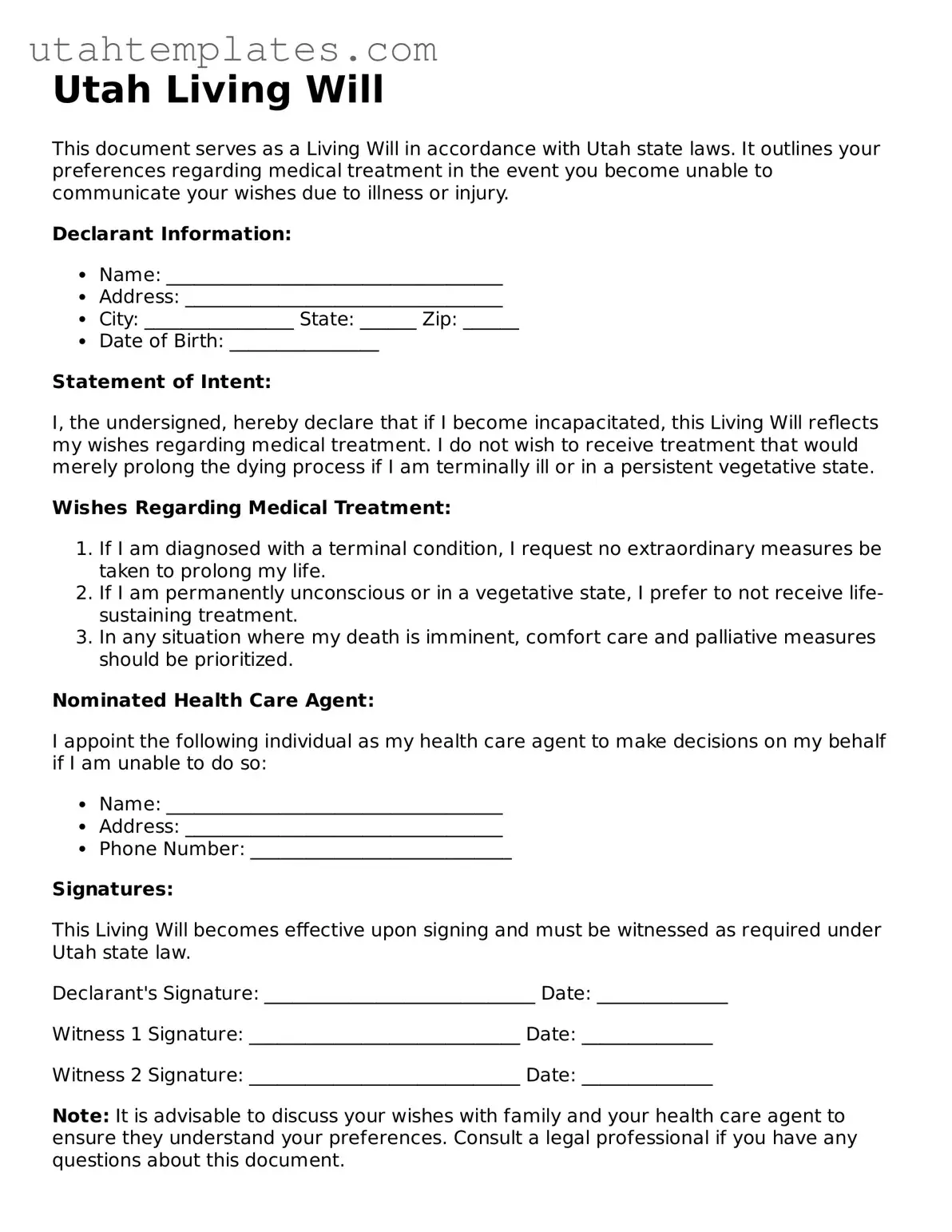Creating a Living Will is an important step in planning for your future healthcare decisions. However, many individuals make common mistakes when filling out the Utah Living Will form. Awareness of these pitfalls can help ensure that your wishes are accurately documented and respected.
One frequent error is failing to specify the types of medical treatments you do or do not want. While the form allows for general directives, being vague can lead to confusion for healthcare providers. Clearly stating your preferences regarding life-sustaining treatments, such as resuscitation or mechanical ventilation, is crucial.
Another mistake is neglecting to date the document. A Living Will should reflect your most current wishes. Without a date, it can be challenging to determine whether the document is still valid, especially if there are multiple versions floating around.
Many people also forget to sign the form in the presence of witnesses. In Utah, two witnesses must observe you signing the Living Will. If this step is overlooked, the document may not be legally recognized, leaving your healthcare decisions in limbo.
Some individuals mistakenly believe that a Living Will is the same as a Durable Power of Attorney for Healthcare. While both documents are important, they serve different purposes. A Living Will outlines your wishes regarding medical treatment, whereas a Durable Power of Attorney designates someone to make healthcare decisions on your behalf if you are unable to do so.
Another common error is not discussing the Living Will with family members or the designated healthcare agent. Open communication can prevent misunderstandings and ensure that your loved ones are aware of your wishes. This conversation can also provide an opportunity for your family to ask questions and clarify any uncertainties.
People often overlook the importance of reviewing and updating the Living Will periodically. Life circumstances change, and so may your preferences regarding medical care. Regularly revisiting the document ensures that it continues to reflect your current values and desires.
Some individuals may not understand the implications of their choices, particularly regarding end-of-life care. It is vital to consider how certain decisions may affect your quality of life and the feelings of your loved ones. Taking the time to reflect on these choices can lead to more informed decisions.
Another mistake is not keeping copies of the Living Will in accessible locations. After filling out the form, it is essential to provide copies to your healthcare provider, family members, and anyone else involved in your care. This ensures that your wishes are readily available when needed.
Lastly, some people fail to seek guidance when completing the form. Consulting with a legal or healthcare professional can provide valuable insights and help clarify any uncertainties. This support can be instrumental in creating a Living Will that truly reflects your wishes and protects your rights.

